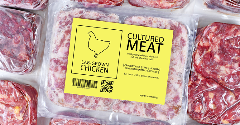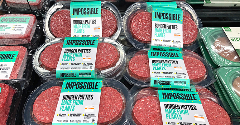News
Food industry unites to tackle FDA’s track and trace requirements for ‘high-risk’ foods
31 Oct 2024Prominent US food industry associations have formed a collaboration to clarify requirements of new Food and Drug Administration (FDA) legislation designed to improve traceability record keeping within the supply chain.

The Food Industry Food Safety Modernization Act (FSMA) 204 collaboration, which counts The Food Industry Association (FMI) and the International Fresh Produce Association (IFPA) as members, will share key information and updates on the FDA’s Food Traceability Rule that requires compliance from industry starting in January 2026.
The group will also set up a forum where businesses and government officials can interact to educate industry and ease the complex compliance process.
The legislation, officially titled FSMA Rule 204, requires a comprehensive tracking and tracing system for high-risk foods that include fresh produce and leafy greens, deli salads, and certain types of seafood, among other produce.
"Food safety is the single most important issue that food retailers, wholesalers, and suppliers focus on every day," said Leslie G. Sarasin, FMI’s President and CEO.
"FDA's FSMA Rule 204 is the most significant regulation the food industry has ever faced and will demand tremendous investments for recordkeeping, data management, and systems changes.
“This collaboration demonstrates our collective commitment to sharing information and working together to ensure the food supply chain has the resources and clarity it needs for compliance."
FSMA Rule 204 encourages detailed records concerning key data elements
The legislation, which was first published in November 2022, implements Section 204(d) of the FDA Food Safety Modernization Act (FSMA).
The key requirements of FSMA Rule 204 include the need for organisations to maintain detailed records that note key data elements linked to critical tracking events along the supply chain.
Also mandated is the need to incorporate traceability lot codes to foods on the FDA’s Food Traceability List during processes like initial packing or transformation to enable accurate linking of traceability records from production to distribution.
The FSMA Rule 204 additionally requires a traceability plan to be devised that includes instructions for recordkeeping, identification of relevant foods, delegation of traceability lot codes, and contact details.
The IFT, IFMA, and the IFDA amongst the organizations that form the FSMA 204 collaboration
"Implementation of FSMA Rule 204 requirements is a cross-industry challenge," said Ed Treacy, Vice President of Supply Chain of IFPA, which is joined in the collaboration by the Association of Food and Drug Officials (AFDO) and not-for-profit global data standards organization GS1 US.
Other members of the collaboration include the Institute of Food Technologists (IFT), International Foodservice Distributors Association (IFDA), International Foodservice Manufacturers Association (IFMA) and National Association of State Departments of Agriculture (NASDA).
"This collaboration will ensure that the resources created and education offered to our collective members are coordinated and aligned," Treacy added.
Despite the FDA’s notification of its plans in 2022, food safety stakeholders continue to flag up issues that concern the supply chain’s readiness in implementing its traceability rule, with calls to stagger or delay the impending deadline.
In anticipation, The National Grocers Association (NGA) and natural and organic food company United Natural Foods (UNFI) recently made available their Step-by-Step Guide to FDA Traceability.
The guide, which attempts to breakdown the 600-page rule into an easy-to-follow resource, is also accompanied by an online Traceability Centre resource, where users can find templates, glossaries, and a mock traceability event exercise.
Helping firms stay ahead as the industry prepares for the new Food Traceability rule
“The new traceability rule is one of the biggest changes in food safety compliance our members have seen in over a decade,” said NGA President & CEO Greg Ferrara.
“Food safety is always a top priority for our members, and we’re incredibly thankful for the support of UNFI in their sponsorship of this easy-to-understand resource that will benefit independent grocers.”
UNFI Chief Corporate Affairs Officer Matt Echols emphasised how important it was for industry members to be able to understand and easily navigate any new rule.
“This guide will be a useful resource as we continue to partner, explore, and assess workable, long-term solutions,” he said.
“We are excited to partner with NGA on this resource to help independent grocers stay ahead as our industry continues preparing for the new Food Traceability rule.”
Related news

UK consumers could be eating cultivated meat within two years
26 Mar 2025
Cell-cultivated products (CCPs), from chicken nuggets to beefburgers, could be on UK supermarket shelves by 2027 after regulators launched a sandbox to accelerate approvals.
Read more
Protein diversification: A massive missed market?
20 Feb 2025
Germany and the UK could be missing out on the massive market for alternative meats and proteins, with one new coalition calling for an end to the “steak-tofu struggle”.
Read more
Most consumers lack trust in AI, but supplement users are ready to embrace the technology
14 Feb 2025
A survey of UK and US consumers found that most supplement users are willing to let AI make decisions on their behalf, but they also demand greater transparency.
Read more
Indians enjoy first bites of cultivated chicken
13 Feb 2025
The first public tasting of cultivated meat in India has taken place as the country prepares for the first commercial cultivated meat products – potentially as early as the end of this year.
Read more
UK publishes latest food security report
12 Feb 2025
The UK government releases its food security report 2024, detailing five core themes for bolstering and securing the future of the country’s food.
Read more
Leading regulatory updates in Asia in 2025
7 Feb 2025
As we head into 2025, numerous legislators around Asia are suggesting and solidifying legal updates and changes that will impact the food and beverage space.
Read more
Singapore introduces Food Safety and Security Bill
3 Feb 2025
Amid growing food safety concerns and supply chain disruptions, the Singapore Food Agency passes its Food Safety and Security Bill (FSSB) to provide greater clarity, assurance, and credibility.
Read more
Impossible Foods secures reinstatement of EU patent for heme protein
28 Jan 2025
The decision overturns the 2022 revocation of the patent and solidifies legal protection of the innovative ingredient that can be used in plant-based food production.
Read more
US wins GMO corn trade dispute with Mexico
24 Jan 2025
A Mexican decree banning imports of genetically modified (GM) corn for human consumption has been overturned in what has been hailed as a victory for US exports.
Read more
EU Parliament passes stricter packaging rules
20 Jan 2025
The European Parliament voted to approve updates to the packaging and packaging waste regulation, including enforceable re-use targets, limits on certain single-use packaging types, and restrictions on the use of PFAS “forever chemicals”.
Read more